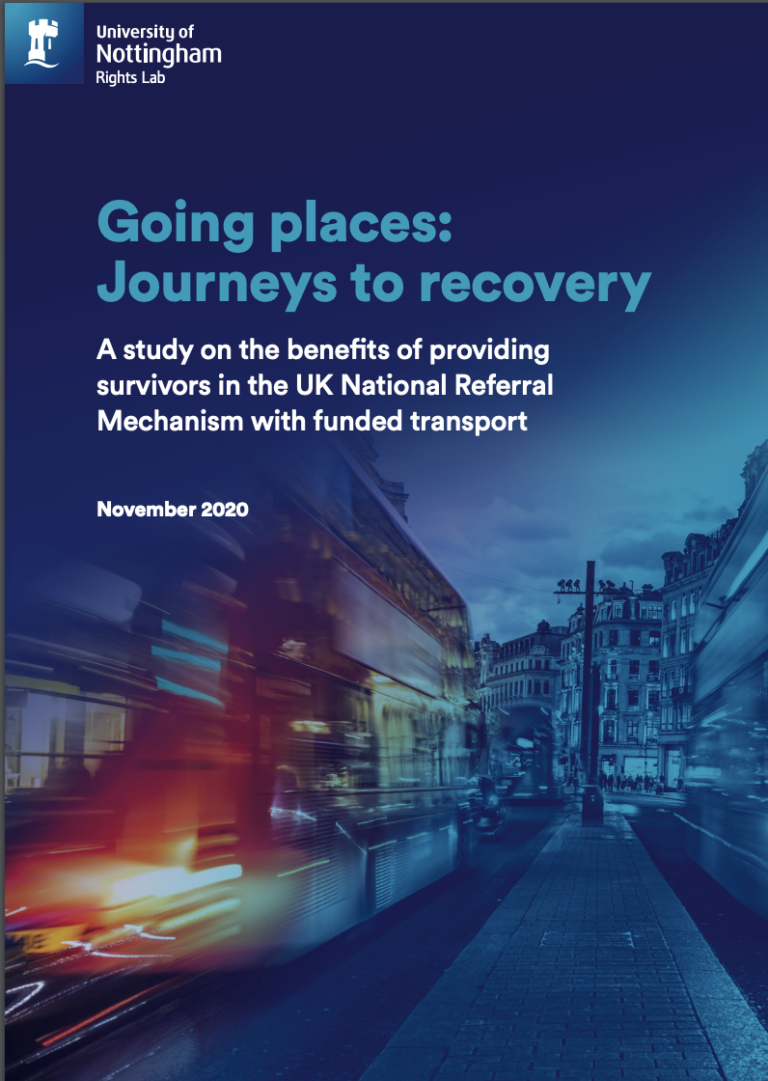This research is the first study of its kind looking at the transport needs of survivors of modern slavery, who are supported through the UK’s National Referral Mechanism (NRM). It sought to provide concrete evidence of the situation regarding transport, which was anecdotally regarded as a significant challenge. The research is a multi-stakeholder initiative that brought together survivors, NGOs, academia and the private sector. The mixed methods study involved providing Oyster cards to 100 survivors and topping them up remotely with £50 every fortnight, for a period of 12 weeks. Participants answered survey questions before and after the 12-week period, and a sample took part in in-depth interviews to understand the impact that free transport had on their recovery
At the time of the research, survivors in the
NRM were entitled to get any travel over £101
per return journey reimbursed if the travel was
for specific purposes related to the European
Convention on Anti-Trafficking (ECAT), and
out of their local area. However, in practice few
were able to claim for local travel because it did
not reach the threshold, it was difficult to prove
that the travel was for ECAT purposes or there
were administrative barriers to reimbursement.
For example, survivors need to register their
Oyster card for their support organization to see
evidence of their travel history and make a claim
for reimbursement. However, survivors cannot
register the cards easily as they often do not have
a smartphone, access to mobile phone data or
access to WIFI.

